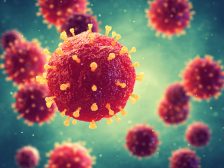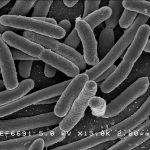Definition
noun
The branch of science that deals with microorganisms and their effects on other living organisms
Supplement
Microbiology is the branch of science that is concerned primarily with the biology of microorganisms and their effects on other living organisms. It encompasses sub-disciplines such as bacteriology, virology, mycology, and parasitology. Thus, it includes studies on bacteria, viruses, fungi, protists, etc. Individuals who are specializing in this field is referred to as microbiologists. Most of the works of microbiologists rely heavily on culture, staining, and microscopy.
Microbiology may be pure or applied. Pure microbiology includes bacteriology, mycology, protozoology, phycology, parasitology, virology, nematology, cellular microbiology, evolutionary microbiology, systems microbiology, molecular microbiology, etc. Applied microbiology includes medical microbiology, pharmaceutical microbiology, industrial microbiology, food microbiology, soil microbiology, water microbiology, air microbiology, and microbial biotechnology.
Louis Pasteur is regarded as the father of microbiology whereas Robert Koch is the father of medical microbiology. Both of them are known for their work on microorganisms and their medical relevance. Martinus Beijerinck and Sergei Winogradsky are regarded as the founders of general microbiology. One of the major contributions of Beijerinck was the discovery of viruses. Winogradsky was known for his work in determining the essential role of microorganisms in chemolithotrophy.
Word origin: Greek mīkros (“small”) + bios (“life”) + –logia
See also:
- microbe
- microbiologist
- microorganism
- immunology
- bacteria
- virus
- fungi
- algae
- protist
Related term(s):


